Marvel TV shows were the worst things to happen to its movies
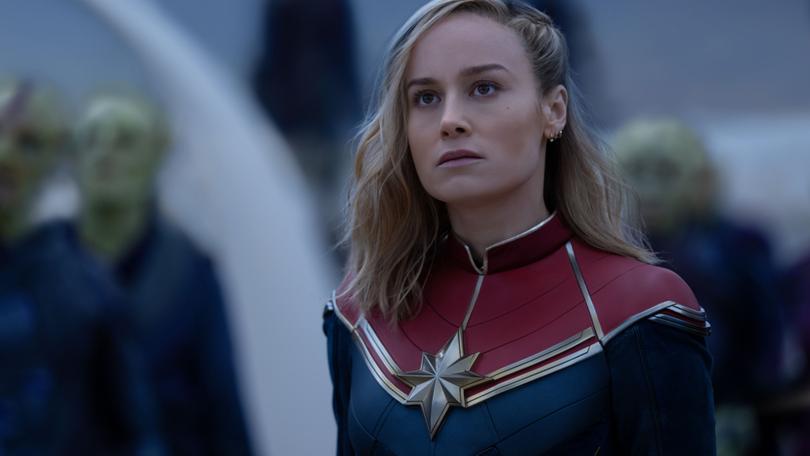
On the promotional trail for Ant-Man and the Wasp: Quantumania in early 2023, director Peyton Reed talked about how exciting it was to move Paul Rudd’s Ant-Man character from the margins of the Marvel Cinematic Universe to the centre of the story.
The first two Ant-Man movies had been something of a palette cleanser, little side adventures that were goofy, high on hijinks and, significantly, didn’t require enough knowledge about the MCU for a thesis.
A casual filmgoer could walk into Ant-Man and take in 80 per cent of the story and not worry about the 20 per cent they weren’t across because it was just a fun time.
Sign up to The Nightly's newsletters.
Get the first look at the digital newspaper, curated daily stories and breaking headlines delivered to your inbox.
By continuing you agree to our Terms and Privacy Policy.Quantumania wasn’t that. Quantumania was bogged down in the mythology of the MCU, it required you to not only have seen the two previous Ant-Man movies, but also two Avengers movies and the Loki TV series.
All the chatter was around how Quantumania would be the first proper introduction to the next MCU Big Bad, Kang the Conqueror, who had already been teased in Loki. Unless you were a superfan, all those strange words added up to one thing, “too hard”.
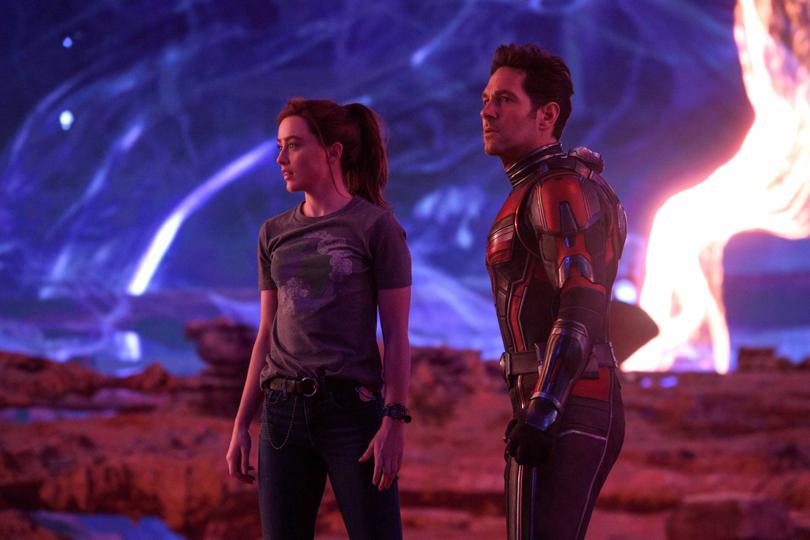
In the five years since the first era of the MCU wrapped with the gargantuan Avengers: Endgame, Marvel Studios has been batting away perceptions of superhero fatigue. The first two years of its “Phase Four” was dragged down by COVID, so the lacklustre box office for Black Widow, Shang-Chi and Eternals didn’t necessarily indicate anything other than pandemic shutdowns.
And then it looked like it was turning around. Spider-Man: No Way Home, a co-production with Sony, stormed the gates with a $US1.9 billion gross, while the next three, Doctor Strange in the Multiverse of Madness, Thor: Love and Thunder and Black Panther: Wakanda Forever, did respectable if not slightly deflated numbers.
It was Quantumania’s $US476 million and, even worse, The Marvels’ $US206 million takings that supercharged the superhero fatigue crisis. Marvel was in trouble. And it hasn’t been able to turn that conversation around for almost 18 months.
This week, during an earnings call for parent company Disney’s latest results, chief Mouseketeer Bob Iger reiterated a shift in strategy for the studio as a whole but, he emphasised, especially Marvel.
“I’ve been working hard with the studio to reduce output and focus more on quality, that’s particularly true with Marvel,” Iger said. He flagged there would be two, maybe three maximum, Marvel movies a year instead of four, and only two Marvel streaming shows per annum.
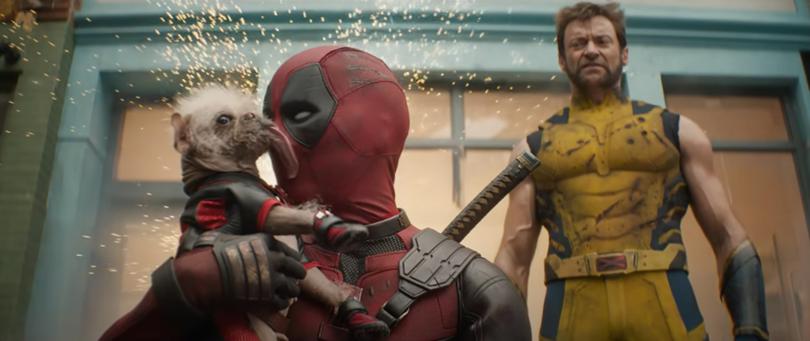
Iger’s comments are not a dramatic, sudden change. As early as February 2023, reports emerged Marvel would slow down its breakneck release schedule.
In fact, there is only one Marvel film in cinemas this year, Deadpool & Wolverine in July, which is partly due to the months-long production shutdowns from the dual Hollywood writers and actors strikes in 2023.
Perhaps the problem is not there are too many Marvel projects. Well, there is, but perhaps the problem is not only that there are too many Marvel projects. It’s that even for a franchise built on its connections, it’s that they’re too linked, particularly between the cinema and streaming slates.
Marvel’s Disney+ streaming shows may be the worst thing to happen to its movies.
In late 2019, as Disney was gearing up to launch its streaming platform, Disney+, Marvel merged its then separate theatrical and TV units under the combined aegis of its movies boss, Kevin Feige.
The TV head, Jeph Loeb, exited the company, and it marked the start of a new way of doing things.
The small screen output would now be canonical in the MCU. It would tell further, deeper stories of the characters you already know and love (Wanda, Loki, Falcon, Bucky) while introducing new ones that would then crossover into the movies.
Marvel already had for years TV series on a variety of platforms including the Disney-owned ABC network and on Netflix. But shows such as Daredevil, The Runaways, Jessica Jones and Agents of Shield were only tangentially connected to the movies.
Or, to put it more bluntly, the TV shows referenced their big-screen cousins but the movies pretended the shows didn’t exist. The only acknowledgment was the appearance of Agent Carter’s James D’Arcy as Edwin Jarvis in Avengers: Endgame.
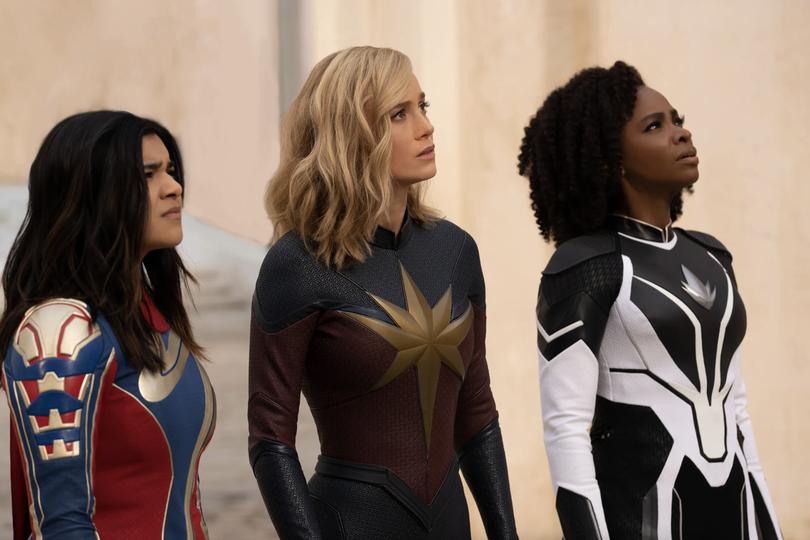
Which also meant that anyone considering buying a ticket to Captain America: Civil War never had to wonder if they needed to watch two seasons of Cloak & Dagger first. But if you went to see The Marvels, a sequel to the billion-dollar Captain Marvel, you needed to have watched two Disney+ series, WandaVision and Ms Marvel.
Now, WandaVision and Ms Marvel are, arguably, the two best shows the MCU has made in its Disney+ era, but the fact remains you’re asking viewers, ideally a big chunk of them casual ones, to invest a lot of time to do homework just to go to the movies for two hours.
It’s no coincidence that two MCU movies everyone cites as proof of superhero fatigue, Quantumania and The Marvels, are the two that are most directly tied into the streaming shows.
Quantumania was also dinged, rightly, for its poor CGI work, which was also tied into the studios’ deranged release schedule.
The strength of the Marvel movies brand was supposed to help elevate the streaming shows and drive subscribers to Disney+ but instead the streaming shows became an unwanted burden on the movies’ potential for robust box office earnings.
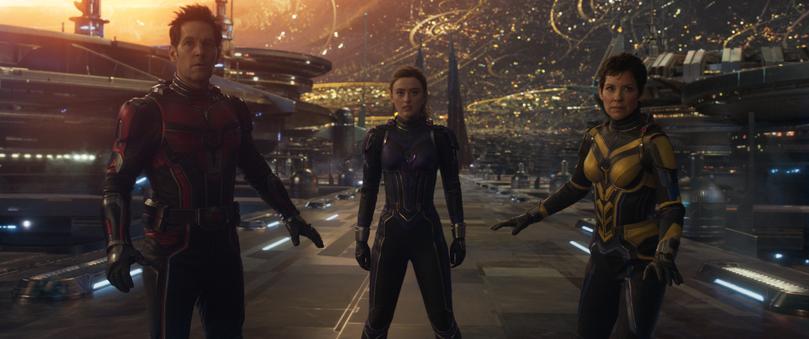
The sheer volume of Marvel streaming shows (including five in its first year in 2021) was due to the previous Disney boss, Bob Chapek’s, philosophy of more, more, more as he chased propulsive growth in subscribers. But that era of growth without profit is over across the entire streaming business.
A reduced output is only the start of how Marvel can recover its brand and the love of not only rusted-on fans but the consideration of casual moviegoers, especially those without Disney+ subscriptions.
It’s not that the streaming shows are bad (even though some of them, ahem, Secret Invasion, are), it’s that they need to be decoupled from the movies.
Keep making shows, sure, but make them standalone. There are already 33 movies, don’t ask audiences to also watch 14 seasons of streaming TV.
Viewers shouldn’t have to labour for some fun, they already do that at their jobs. Make the movies homework-free.

